Monthly Journal
October 2022
International Press Review
The most relevant events of the area through international sources
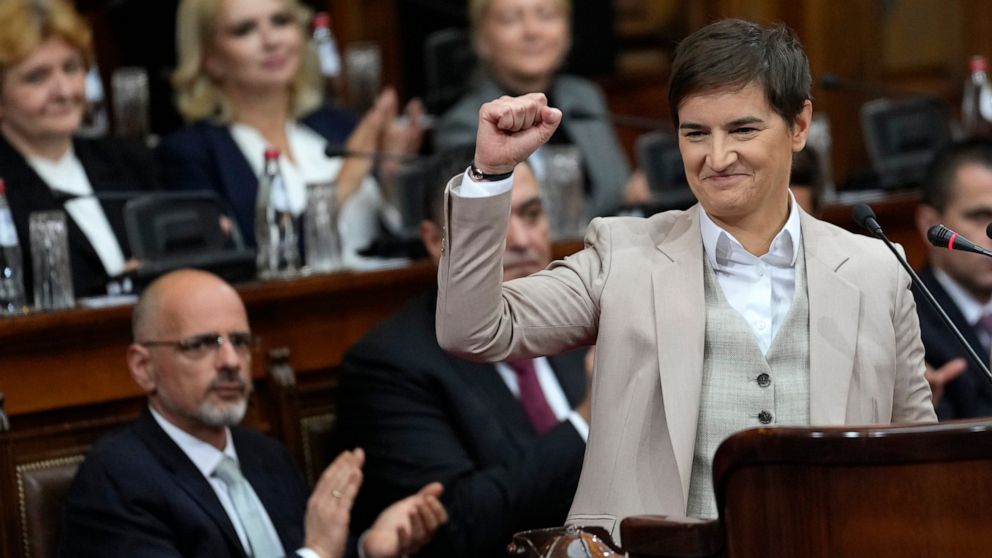
Serbia got a new government six months after the elections
The Associated Press
More than six months after the April 2022 elections, the Serbian parliament elected a new government, again led by PM Ana Brnabic and composed of 28 ministers, mainly from the Progressive party of President Aleksandar Vucic and the Socialists of Ivica Dacic. Dacic, seen by many as pro-Russian, is the new foreign minister, while Zorana Mihajlovic, previously energy minister and considered one of the leading pro-Western voices in Serbia, is not among the appointed ministers. The new government will not be pro-Russian or pro-Western, but will be working for the interest of Serbia, Brnabic said. The new executive’s main tasks will be dealing with inflation, the energy crisis, and the issue of the sanctions against Russia, which Belgrade is still refusing to adopt despite pressures from the EU. Dacic said that Belgrade has not changed its policy on the sanctions.
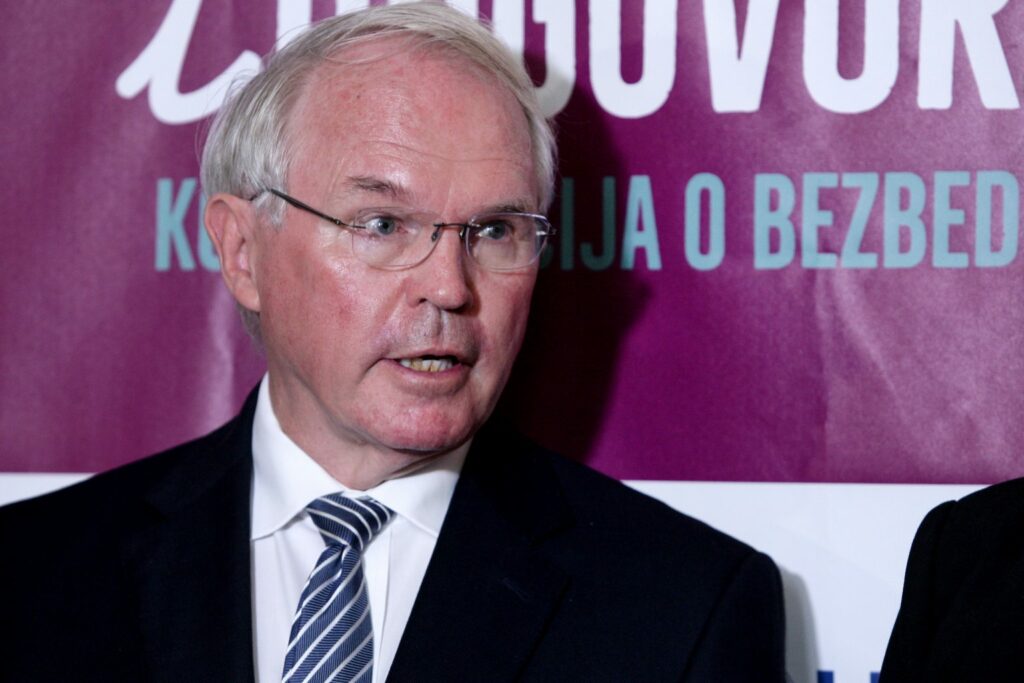
Strategic partnership between the US and Serbia announced
N1
US Ambassador to Serbia Christopher Hill stated that Belgrade and Washington are discussing a potential strategic partnership between the US and Serbia and that signing of such an agreement might happen in the near future. Hill also stated that Serbia is actively seeking alternative gas sources and working on developing renewable energy sources to reduce its reliance on a “very unreliable supplier,” meaning Russia. “Our message to Serbia is that it needs to diversify its energy sources and rely less on Russian sources,” Hill said.
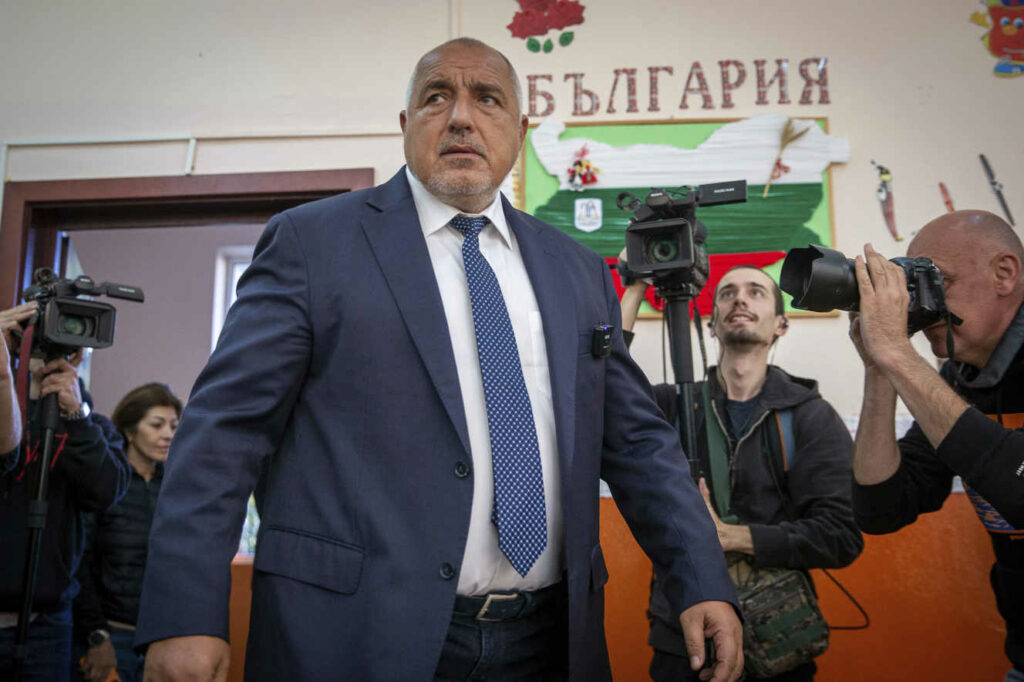
Former PM Borisov wins elections in Bulgaria
Le Monde
The party of conservative former Prime Minister Boyko Borisov came first in Bulgaria’s general elections on October 2. However, analysts have warned that the outcome is unlikely to end the country’s worst period of political instability since the fall of communism. Indeed, Borisov won the fourth election in 18 months in Bulgaria, but he fell short of a majority. The difficulties in forming a new cabinet would mean renewed insecurity in the EU’s poorest member state at the start of a winter dominated by the Ukraine conflict, soaring inflation and rising energy costs.
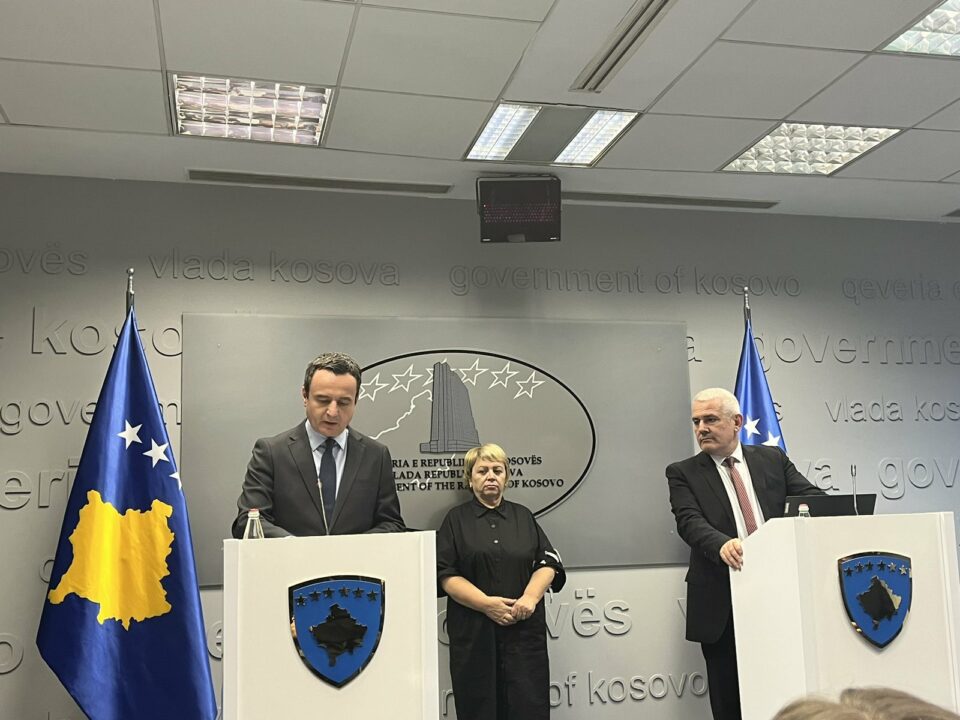
Kosovo postpones licence plate change for Serbs
Balkan Insight
At the end of October, Kosovo Prime Minister Albin Kurti announced that he would delay the implementation of his government’s decision to oblige drivers of vehicles with Serbian license plates to switch to Kosovo plates, initially planned for November 1. Kurti stated that the change to Kosovo plates will now be phased in and will last until the 21st of April 2023. Pristina explained that drivers who continue to use Serbian plates would first be reprimanded, then fined and finally forced to attach probationary plates to their vehicles. Belgrade sees Pristina’s moves as an attempt to destabilize Kosovo’s north, primarily inhabited by Serbs, and to incite new tensions in the Balkans.
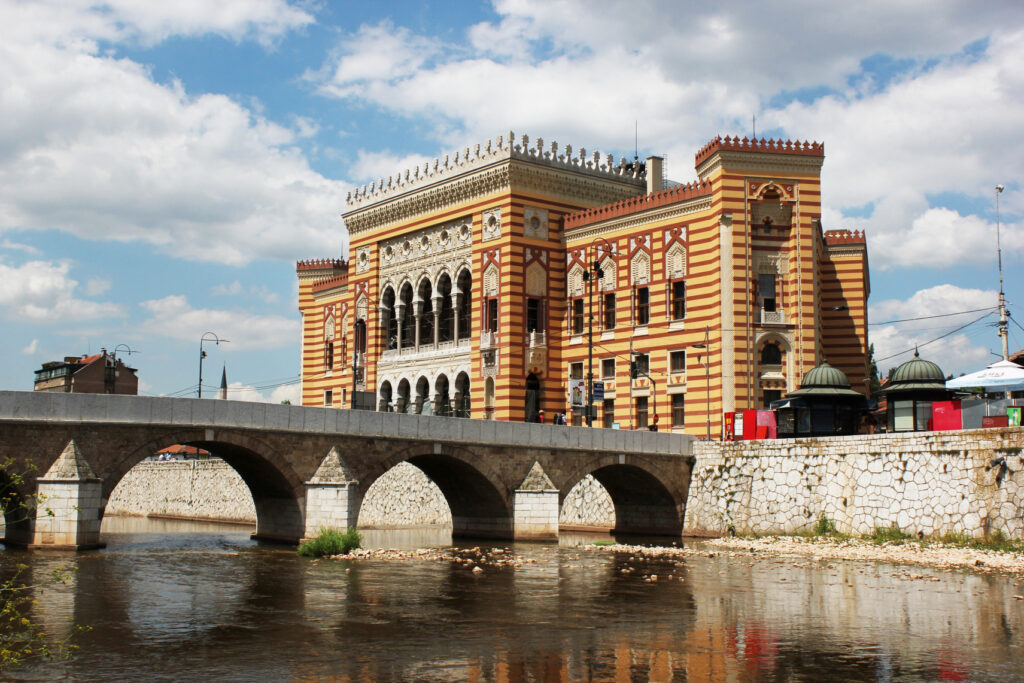
High Representative imposes controversial electoral reform in Bosnia
European Western Balkans
Following the closure of polling stations in Bosnia and Herzegovina, the High Representative in BiH, Christian Schmidt, imposed controversial and far-reaching changes to the electoral law. Schmidt said in a statement that the new measures “are aimed at improving the functionality of the Federation of Bosnia and Herzegovina (…) and ensuring timely implementation of the results of the October 2022 elections.” Critics argue that Schmidt’s reforms, which are causing controversy in Bosnia and abroad, are undemocratic, favour the Bosnian Croat HDZ party and further petrify the ethnic fractures in the country.
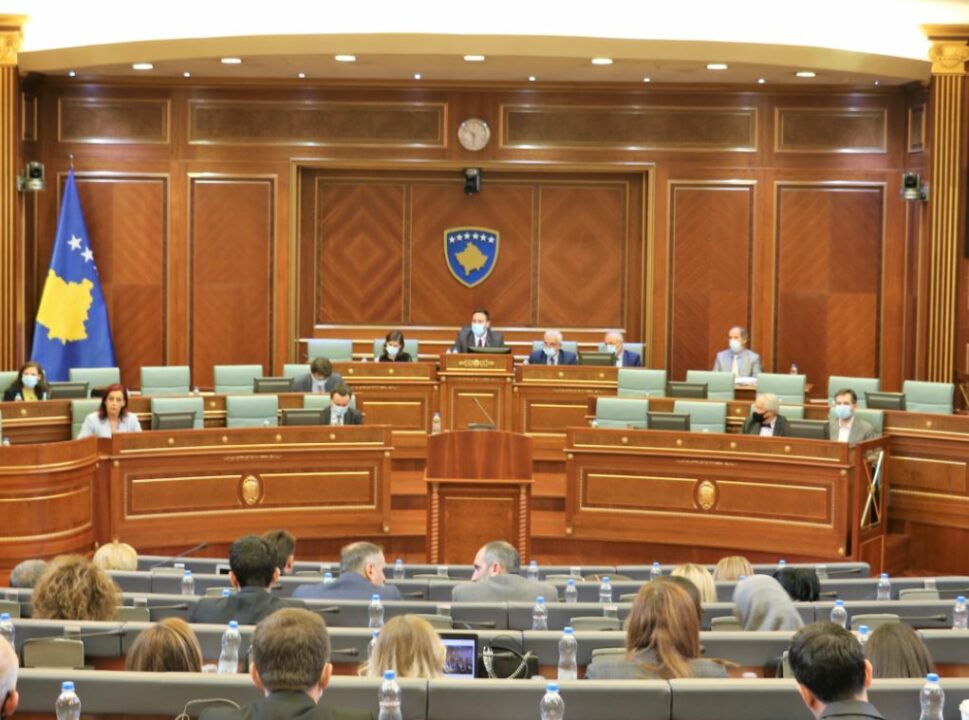
Military service could become compulsory in Kosovo
Euronews
Shqipe Mehmeti-Selimi, an MP from the ruling Vetevendosje party, has announced that a document on compulsory military service will be sent to the Kosovo Parliament very soon. Vetevendosje is led by Prime Minister Albin Kurti. Mehmeti-Selimi also stated that the Ministry of Defence has formed a working group to draft a new law, and that they are considering cooperation with Switzerland in this regard. The move could rekindle tensions with Belgrade, which does not recognize Kosovo’s independence and regards any move toward the establishment of a regular army in Kosovo as a serious provocation.
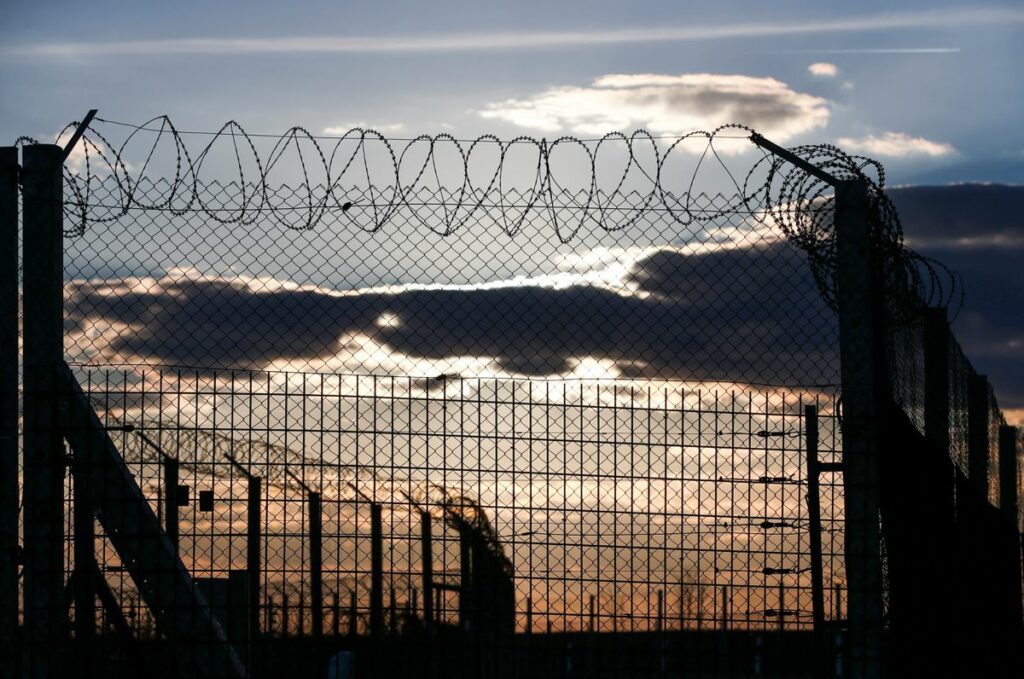
Migrants’ flows increasing through the Balkans
Reuters
Hungary, Serbia, and Austria pledged new measures to stem the flow of illegal migrants into the European Union via the Western Balkans. According to Frontex, 86.581 irregular entries were detected at the European Union’s external borders with the Western Balkans in the first eight months of this year, a 190% increase year-on-year. The measures would aim to move the EU’s front line of defence from Hungary’s southern border with Serbia to North Macedonia, as well as deport illegal migrants and create areas outside the European bloc’s borders for asylum seekers.
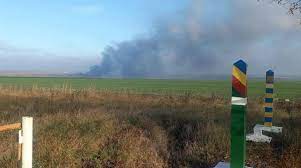
Shot-down Russian missile fell on a Moldovan village
The New York Times
Debris from a Russian missile shot down by Ukrainian air defences landed in a border village in Moldova on the 31st of October, officials said, in one of the clearest examples of the war spilling over into another European country. Previously, three Russian missiles launched from ships in the Black Sea crossed Moldovan territory on their way to Ukraine on October 10. The missiles flew close to Moldovan industrial sites and to an ammunition depot, located less than 100 kilometres from the Romanian border.
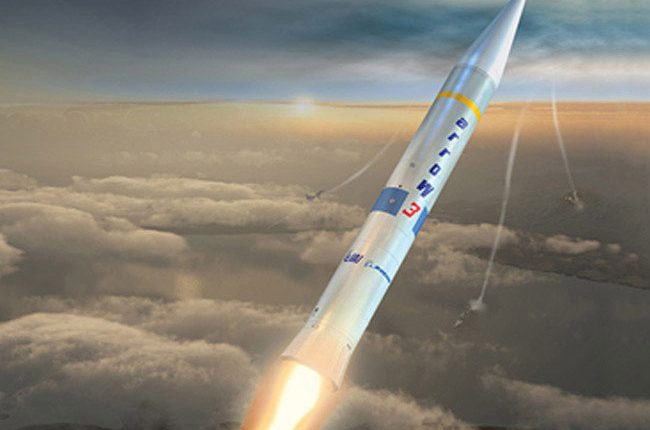
Eastern European countries jointly consider air defence system
Romania Journal
Fourteen EU and NATO member states, including Romania, Bulgaria, and Slovenia, signed a letter of intent for the joint acquisition of air defence systems. According to German Chancellor Scholz, the so-called European Skyshield Initiative (ESSI) would be a “security boost for all of Europe,” and it would be more effective than each country building its own expensive and complex air defence system. The systems involved should be the German IRIS-T Surface Launched Medium-range and the proven US Patriot. Other systems are under consideration among which the Israeli Arrow 3. The European initiative has not been discussed among European security partner states, such as France or Italy.
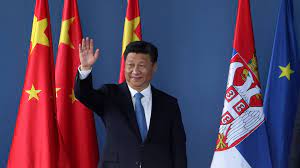
China expanding its influence in the Balkans
BIRN
Beijing’s influence in Southeast Europe continues to expand, particularly in Serbia, Bosnia and Herzegovina, Albania and Montenegro, according to the China Index – published by a network of civil society organizations, including BIRN. The Index included several Southeast European countries for the first time, confirming that China’s influence continues to grow.
The Insight Angle

Toby Vogel
Political analyst and reporter on foreign affairs, specialising in EU policies and politics towards Western Balkans.
He is co-founder of the Democratization Policy Council (DPC), he has worked for several UN agencies and the International Rescue Committee in New York and Sarajevo,
and was a political reporter with European Voice in Brussels, where he is based.
How important is it for Bosnia and Herzegovina that the European Commission recommended for the country to get the EU candidate status? And do you think the political elites in the country will manage to work together to fulfil the conditions for reaching that goal?
The European Commission believes that the recommendation itself is a strong signal to the citizens and the authorities in Bosnia and Herzegovina, currently in caretaker mode following the October 2 elections. And it believes that this is true even if the EU member states fail to follow the recommendation at the December European Council. And indeed, there has been some movement on long-stalled files: following the recommendation of October 12, the Federation House of Peoples appointed three judges to the entity’s Constitutional Court, an appointment that had been blocked since 2019, and the High Judicial and Prosecutorial Council appointed a new Chief Prosecutor in the BiH Prosecutor’s Office. Whether this momentum prevails during difficult coalition negotiations and especially in case the EU member states fail to take a decision in December remains to be seen. In and by itself the recommendation is of limited and primarily symbolic significance – a signal that BiH belongs in the EU. But what is the signal if the member states don’t follow?
The EU, however, looks still not fully engaged in the Balkans, as shown by the fact, for instance, that the visa regime for Kosovo was not abolished. How risky is to keep the Western Balkans in limbo without fully integrating these countries into the EU?
There is absolutely no excuse for Kosovo being be the only Balkan country whose citizens need visas to enter the Schengen zone. The country met all conditions years ago, and those member states that are blocking the lifting of visa requirements are playing with fire. But, of course, the much bigger issue is how far Kosovo can progress toward the EU as long as five member states refuse to recognize its independence (all these countries have internal and/or external issues that may be affected by the recognition of Kosovo, Note of the Editor).
In general, there seems to be a growing sense among EU policy-makers that the WB6 should be integrated through certain EU mechanisms and policies, for example the voluntary joint gas purchases, in order to strengthen the region’s resilience against Russian influence. There is a growing sense that nice words alone will not do the job. So, I certainly welcome strengthened regional cooperation and deeper integration of the region in the EU. But the real problems are of a political nature, and as long as the EU continues to pretend that the likes of Aleksandar Vucic and Edi Rama are genuine partners, genuine reformers, real transformation will remain elusive.
Going back to Bosnia, what is in your view controversial about the electoral reform imposed by High Representative Schmidt?
Schmidt has managed to completely discredit the Office of the High Representative (OHR) even in the eyes of those, like myself, who believe that as long as the Dayton Peace Agreement applies and BiH hasn’t updated its constitution, the High Representative is required as a final arbiter and last line of defence against secessionism. While the practical effects of the imposition may be relatively small, he has done huge damage to the OHR and demonstrated he is utterly unqualified for the office. What I fear is that his approach is based on the notion that the “international community” needs to give something to the Bosnian Serb and Bosnian Croat ethnonationalist parties so they shall stop obstructing the work of the authorities. If this is really the approach, then we should brace ourselves for further concessions to Dodik, perhaps on the issue of state property.
Although risking losing Russia’s oil passing through Croatia and being politically isolated in Europe, Serbia continues to refuse to implement sanctions against Moscow. Do you expect any change in Serbia’s foreign policy? If not, what consequences Belgrade might face?
President Vucic will balance between the EU and Russia for as long as he can, and make sure to extract a high price if he ever actually shifts and agrees to sanctions. My feeling is that while there is a level of anger with Serbia among EU member states, the temperature was lowered when Vucic agreed to an EU demand to introduce visa requirements for certain countries from which many migrants come to Belgrade, and then continue on the “Balkan route.” That decision was not domestically sensitive and Vucic remembers from 2015-2016 that the EU is fixated on the issue of migration. This has bought him some wiggle room on the sanctions but it will not last. The pressure from the EU will increase again, eventually, and in the end Vucic might have to give in and adopt at least some sanctions.
The Key Story
Strategic trends
No major positive surprise in Bosnia’s contested elections, but EU’s long path reopens
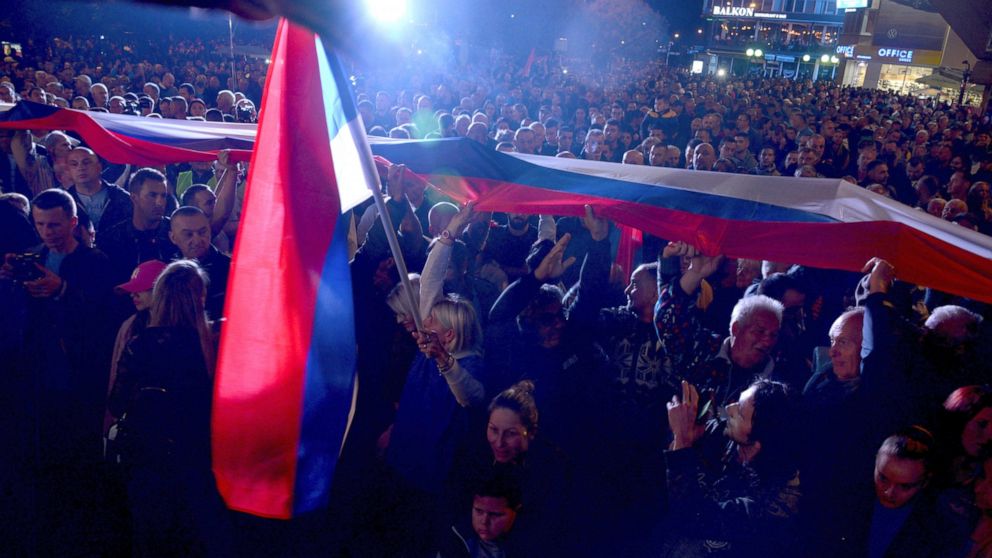
Bosnia and Herzegovina (BiH), a Balkan country still deeply divided along ethnic lines, held general elections on the 2nd of October. The vote coincided with deep political infighting and high tensions, including new threats of secession from Bosnian Serbs and frustration among many Bosnian Croats, who have been demanding electoral reforms to be better represented in the Federation, one of the country’s two entities.
Voters casted ballots for three of Bosnia’s tripartite presidency members, MPs in the central parliament, and several local races. The three established ethnic parties, the Bosnian Croat HDZ, the Bosnians Serb SNSD and the Bosniak SDA, secured significant wins. A surprise outcome was yet the defeat of a two-time member of the country’s tripartite presidency and SDA’s leader, Bakir Izetbegovic, defeated by social democrat Denis Becirovic.
Milorad Dodik, a long-time Bosnian Serb nationalist leader who is openly pro-Russian and supports the secession of Republika Srpska (RS) from Bosnia and Herzegovina, ran for president of the country’s Serb entity RS. According to preliminary results, Dodik received 48%, while his opponent Jelena Trivic received only 43%. The results, however, were challenged by Trivic and the opposition, who staged mass protests in the RS, calling for a recount of the votes. The Central Electoral Commission ordered a recount in a dramatic development, infuriating Dodik and thousands of his supporters. They marched in the streets of Banja Luka, the Bosnian Serb capital, threatening secession. Finally, following the recount, Dodik was declared the winner of the presidency over Bosnia’s Serb entity, though Trivic still did not recognize the results. New anti-Dodik protests have been planned for November.
After the victory, Dodik left the chair of the Bosnian Serb member of the tripartite presidency to his long-time ally Zeljka Cvijanovic. The mandate of the current Bosnian Croat member of the presidency, Zeljko Komsic, was confirmed by the voters.
The vote’s outcome confirmed the grip on power of major ethnic parties that ruled the country in the decades following the war. Even though no positive development in terms of reforms has been observed in recent years and cannot be expected shortly, just after the elections, the European Commission surprisingly recommended that EU countries grant Bosnia candidacy status to join the bloc.
“The Commission recommends that candidate status be granted to Bosnia and Herzegovina” by the European Council “on the understanding that several steps are taken,” EU commissioner for enlargement Oliver Varhelyi announced on October 12. The commission said Bosnia needed to progress on democracy, the functionality of state institutions, the rule of law, and the fight against corruption and organized crime. “Of course, it is up to the candidate countries to reform their economies and institutions and advance towards our union,” said Commission’s chief Ursula von der Leyen, noting that the “wind of change is once again blowing through Europe, and we have to capture this momentum.”
Several EU countries, including France, the Netherlands, and Germany, are said to oppose the decision, which they see as an excessive reward for Bosnia-Herzegovina’s political elite, who have done little to advance the country’s EU ambitions. However, pushed by other EU countries such as Austria and Slovenia, Brussels is convinced that keeping Bosnia out of the EU integration process would be a mistake, leaving the country too vulnerable to the influence of external powers such as Russia, China, and Turkey.
BiH’s candidate status is expected to be decided by December, and it could be one of the last chances for Sarajevo to open the door to EU entry, a long process that could last decades.
Further News and Views
Fearing to lose Russian oil, Belgrade looks at new pipeline
Sources: Reuters, Fonet, Euractiv
In October, the European Union agreed on new sanctions against Russia for its actions in Ukraine, with a new package of measures that could affect third countries such as Serbia, which receives Russian oil from Croatia via the JANAF pipeline. Contrary to some previous expectations, the EU’s eighth package of sanctions includes a ban on importing Russian crude oil, from which the Western Balkans may not be exempt. Following that, Hungary and Serbia agreed to build a pipeline connecting the two countries and supplying Serbia with Russian Urals crude via the Druzhba oil pipeline, cementing further their strong relationship. Serbia blamed Croatia for pushing that exemptions not apply to it. Serbian Prime Minister Brnabic stated: “They are using energy for political blackmail and retribution.”
EU pledges 500 million to the Balkans to cope with the energy crisis
Sources: Balkans Green Energy News, Euractiv, AFP
The European Union has pledged €500 million to improve energy infrastructure in the Western Balkans and reduce the dependence on Russia, according to European Commission chief Ursula von der Leyen, who visited the region in October. The EU grants will support the construction of new energy connections in the area and promote energy efficiency and renewable energy while addressing the impact of high energy prices. According to the EU Commission, part of the assistance will be provided through the joint purchase of gas on the global market. The Balkans are experiencing rising energy prices due to Russia’s war in Ukraine, negatively impacting inflation and increasing poverty in the region.
Danube to be used to transport Ukrainian grain to the EU
Sources: HINA, UNCTAD, Bloomberg
Foreign ministers from 14 European countries (Germany, Austria, Czech Republic, Slovenia, Croatia, Bosnia and Herzegovina, Slovakia, Hungary, Serbia, Montenegro, Ukraine, Romania, Bulgaria, and Moldova) announced plans to improve the Danube navigation route for grain transport from Ukraine. In a statement, they emphasized the importance of using an alternate route for grain exports from Ukraine due to Russia’s blockade of Black Sea ports. The document claims that Danube ports are among the possible solutions to the food crisis.
EU - NATO
Major military exercise in Bosnia
Sources: EUFOR, N1
From October 17 to November 22, soldiers from 20 countries will take part in the EUFOR Quick Response 2022 exercise in Bosnia and Herzegovina, according to the EU peacekeeping mission in BiH (EUFOR). The exercise was organized to “demonstrate EUFOR’s capability and determination to contribute to a safe and secure environment for BiH citizens” and demonstrates the EU’s commitment to Bosnia and Herzegovina’s and its citizens’ European future. Meanwhile, US European Command Commander General Christopher G. Cavoli arrived in Sarajevo and expressed support for the EU military mission in Bosnia and Herzegovina, EUFOR Althea, whose mandate must be renewed by the UN Security Council in November.
ECONOMICS
War in Ukraine leads to increasing poverty in the Balkans
Sources: Unicef, World Bank, BNE Intellinews
While the indirect economic consequences of the ongoing conflict are most severe in Russia and Ukraine, UNICEF and World Bank studies found that several Southeast European countries are also suffering, with a sharp increase in poverty expected. According to UNICEF, Kosovo is likely to suffer the most as a result of the crisis, with an additional 3,7% of children and 2,1% of adults expected to fall into poverty. Other countries that have been hit hard include Moldova (2,7% and 2,2%), Croatia (3,1% and 1.7%) and Romania (3,1% and 1,8%). According to the World Bank, inflation, particularly for food and energy, is negatively affecting the poor in the Balkans. In the absence of government aid, the severity of the energy and food price shocks could result in a 13% increase in the region’s poor.

Stefano Giantin
Journalist based in the Balkans since 2005, he covers Central- and Eastern Europe for a wide range of media outlets, including the Italian national news agency ANSA, and the dailies La Stampa and Il Piccolo.

